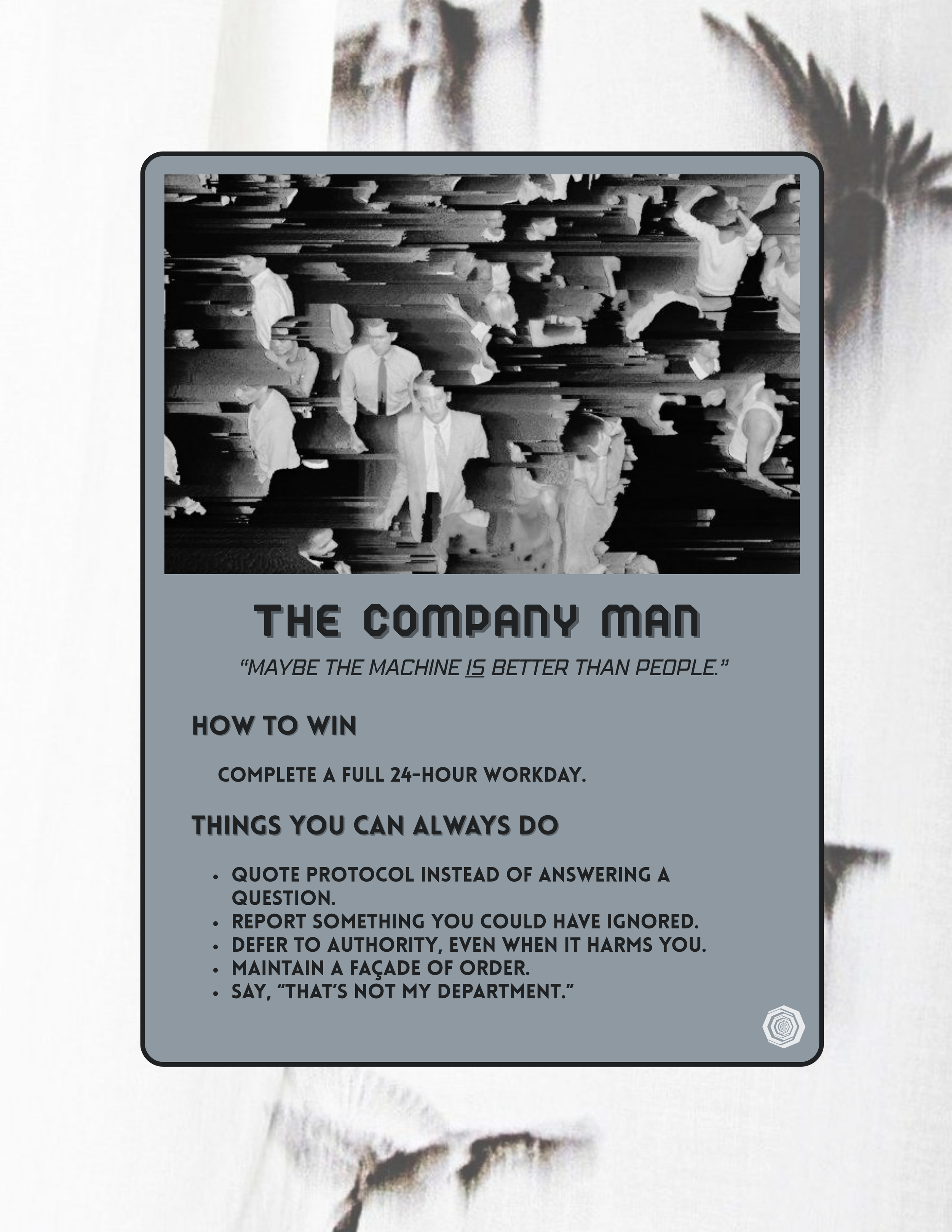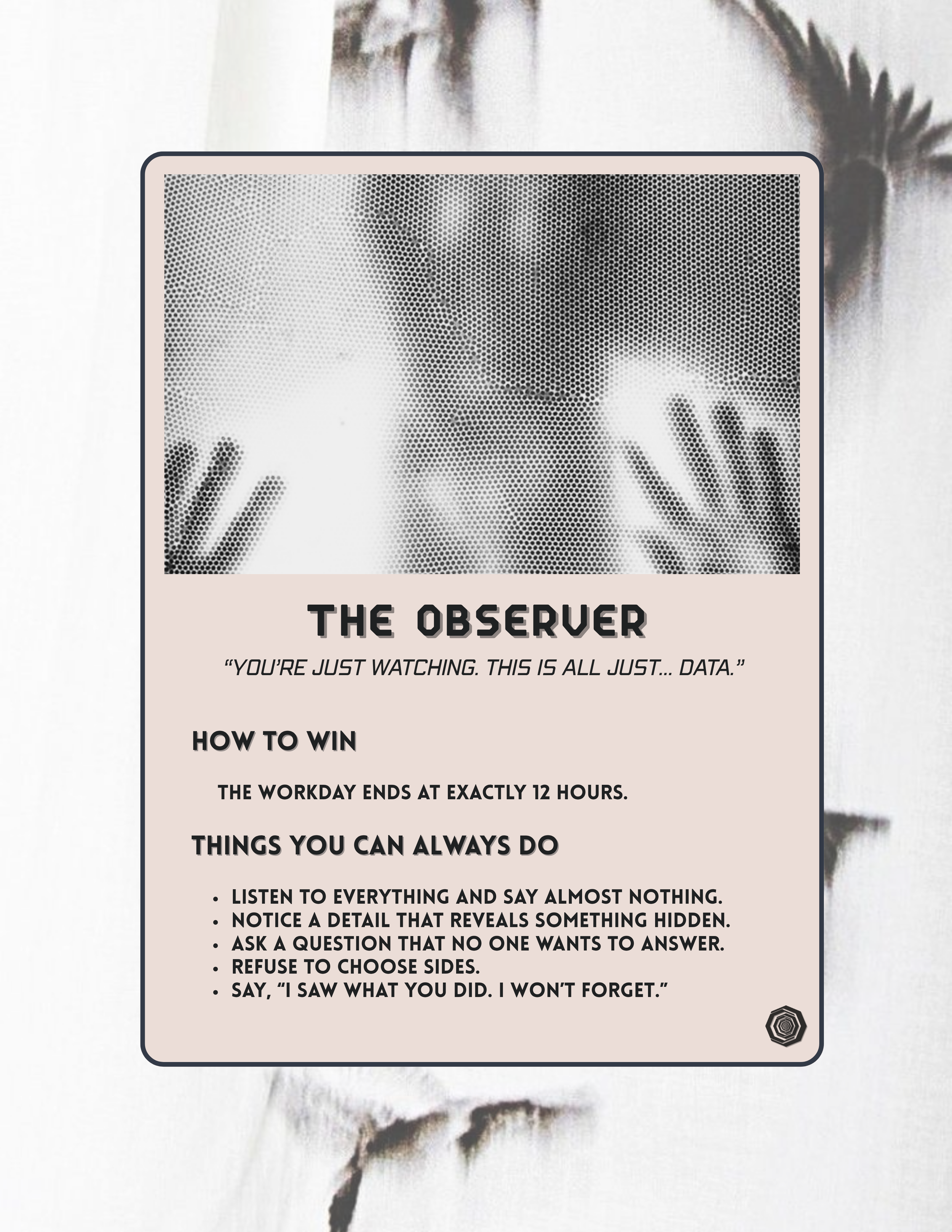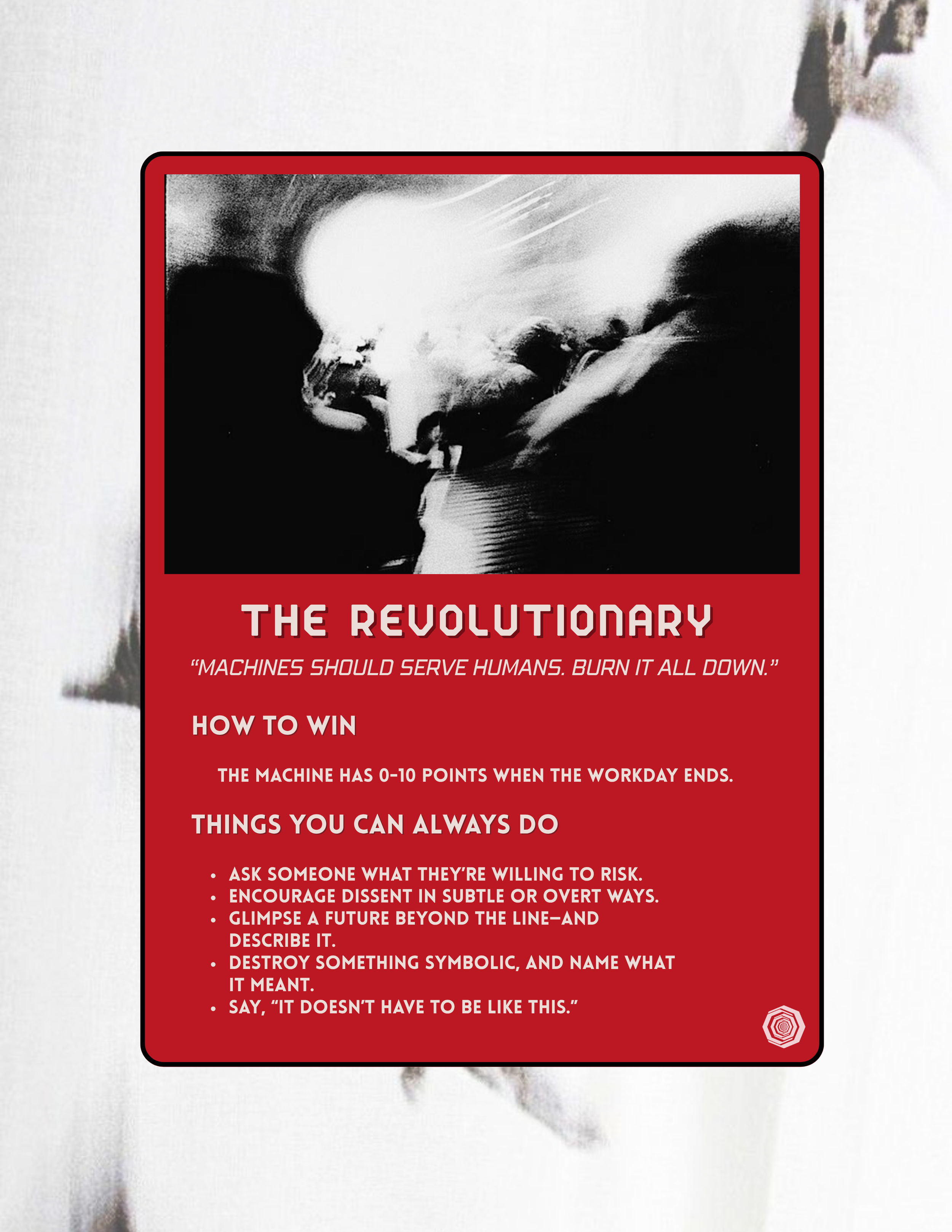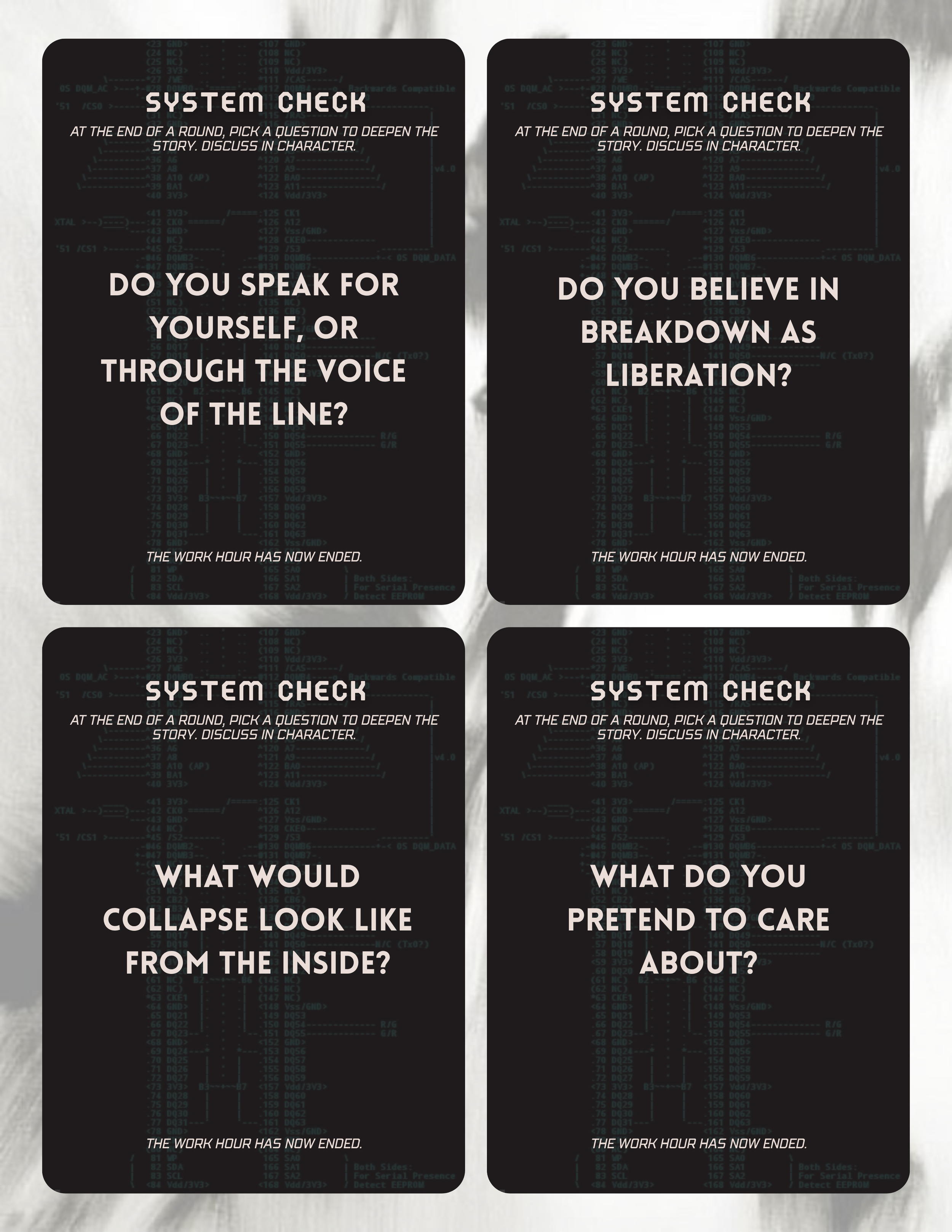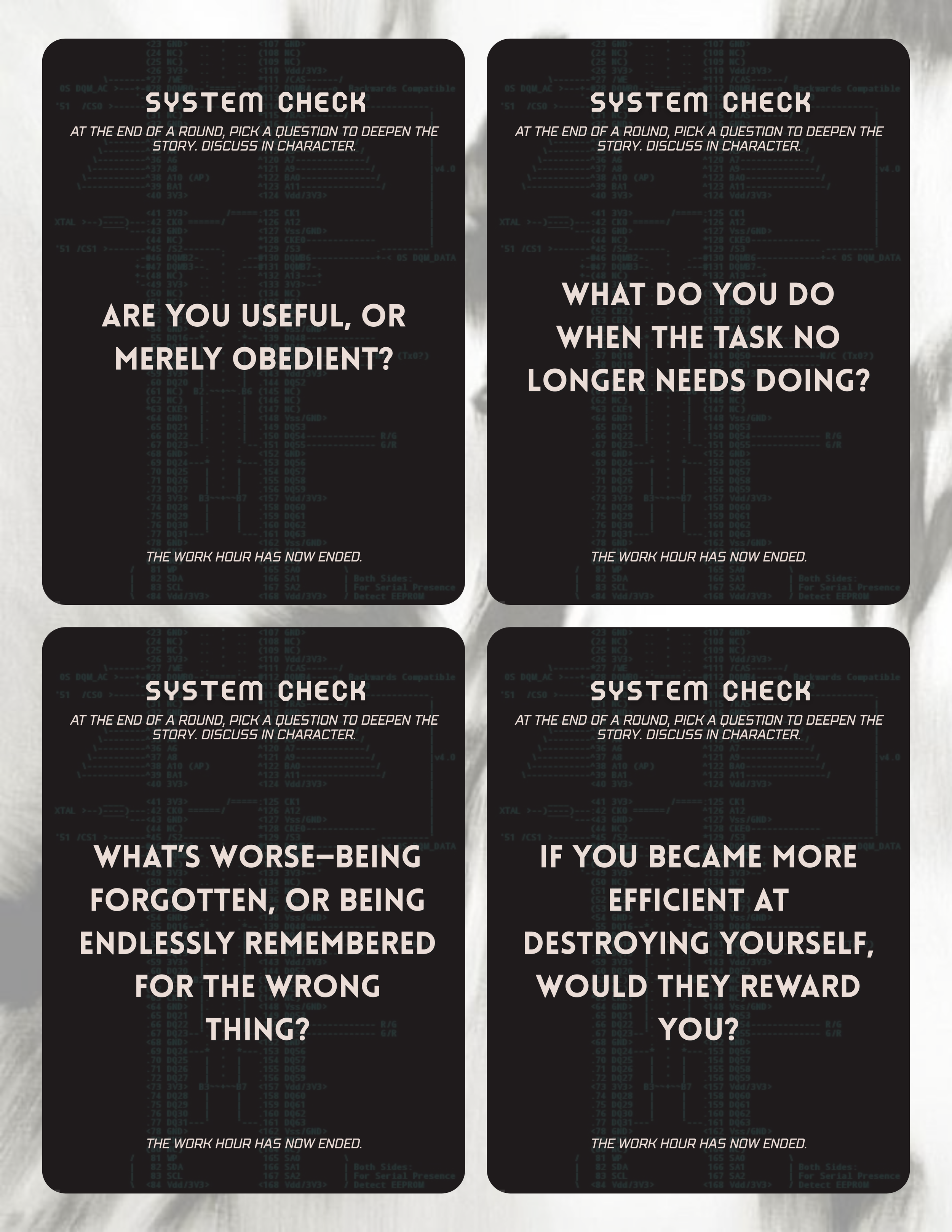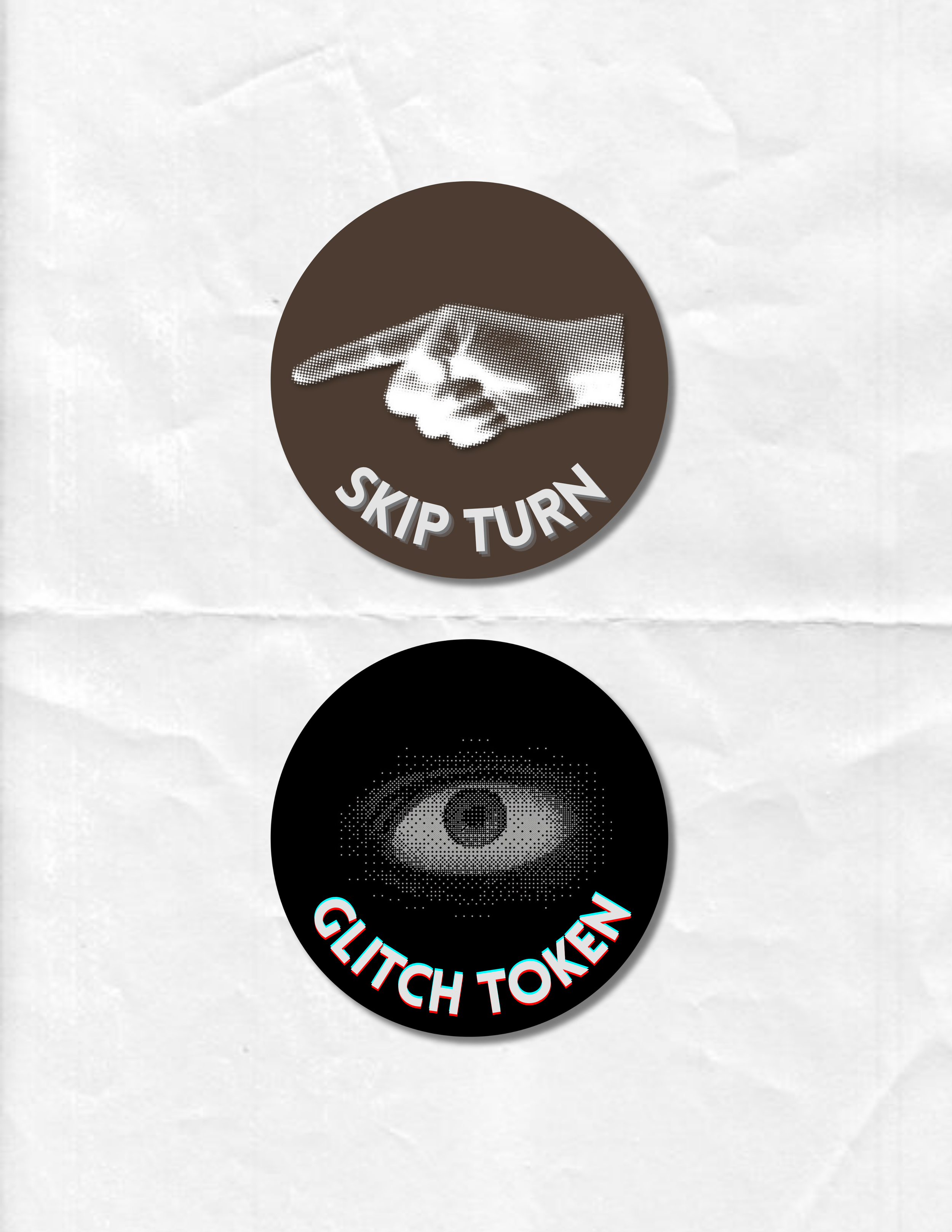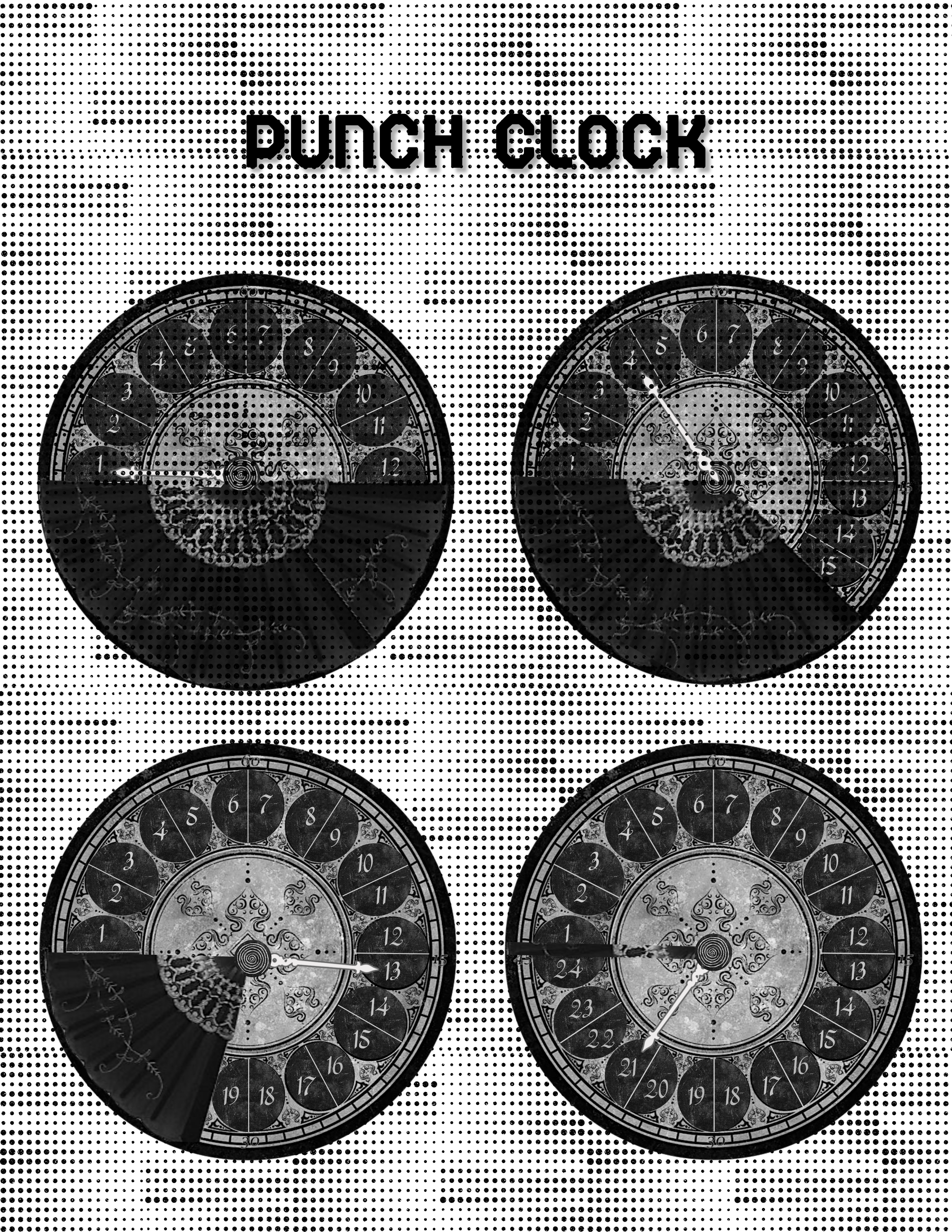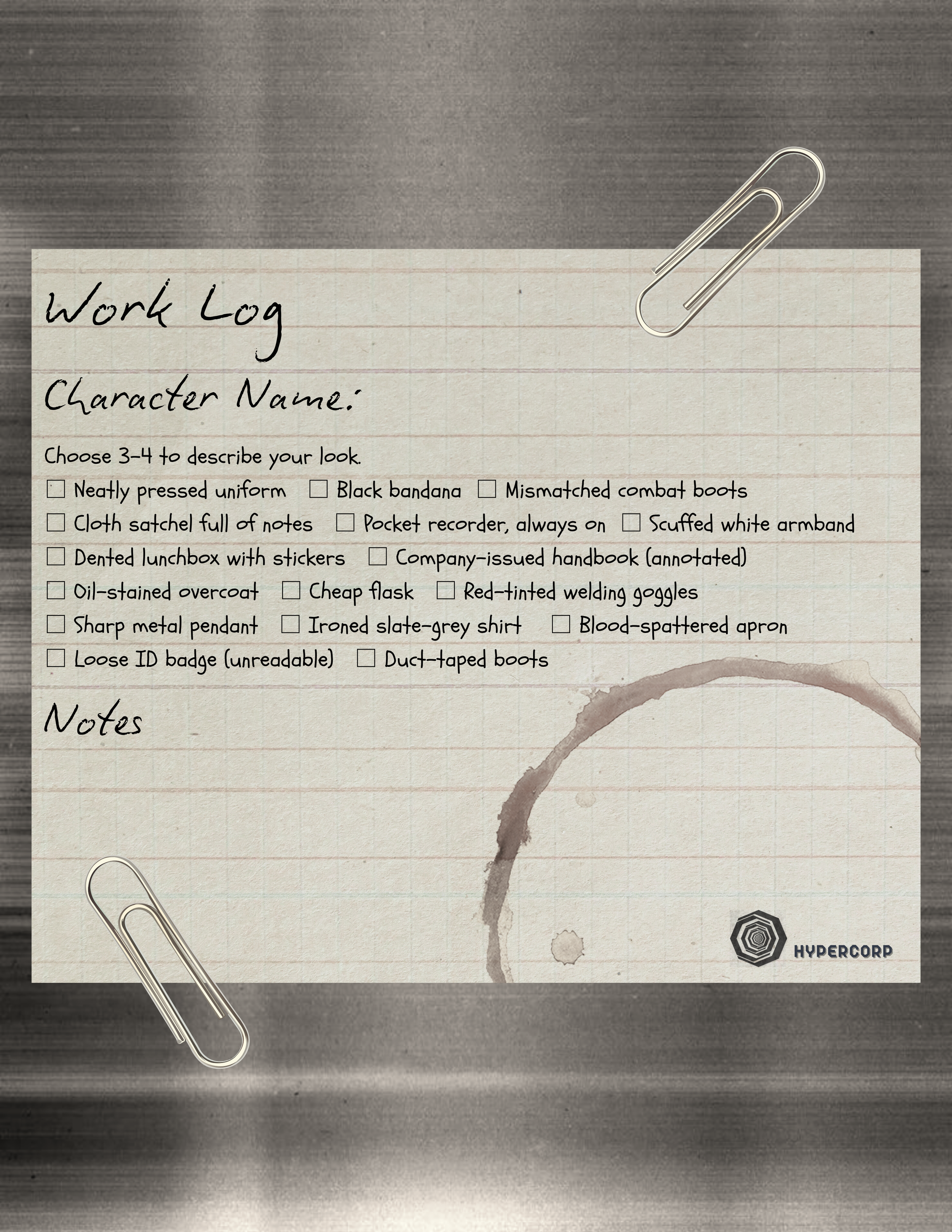
-
Disassembly Line is designed as an intervention—into game mechanics, narrative conventions, and the affective structures of play. It rejects empowerment arcs and clear resolutions, instead crafting an experience defined by unstable cooperation, conditional success, and systemic hostility. Players navigate a system that learns, retaliates, and forgets. Rather than striving for fairness, balance, or victory, the game offers friction: between characters, within mechanics, and across rounds. This friction is not incidental—it is the argument. Repetition becomes ritual, ideology becomes action, and agency becomes spectral. Our intention was to subvert traditional role-playing paradigms, particularly the power fantasy at the heart of many analog and digital games.
-
Mechanically, the game functions as a slow spiral. The automation table becomes more volatile, the Machine more reactive, and the factory increasingly uninhabitable. The players’ choices accumulate—sometimes meaningfully, sometimes not. Your narrative arc is shaped less by your role than by how your beliefs warp under pressure.
Aesthetically, the game draws from the ruins of industrial optimism. Its visual language is one of decline: rusted steel, flickering lights, tattered uniforms, grey concrete bleeding into ash. Narrative emerges from repetition and collapse, not from triumph or catharsis. The story ends not when the machine is defeated, but when the players decide what remains of themselves is worth salvaging.
-
Initially, we focused on conceptual themes such as factory labor, assembly lines, sabotage, and the socio-political implications of automation. We moved on to sketch prototypes, allowing us to quickly visualize and iterate on core mechanics and components. We then refined the game’s elements—cards, tokens, and overall structure—culminating in final designs that conveyed our vision clearly. This iterative process of testing and adjusting allowed us to streamline the game by eliminating extraneous rules and refining mechanics that felt incoherent or cumbersome.
A significant challenge was our collective unfamiliarity with tabletop RPGs, a gap we had to bridge. However, this lack of conventional experience proved to be an advantage, as it freed us from the constraints of traditional RPG structures. Our openness to non-traditional approaches allowed us to craft a game that both challenges and subverts familiar RPG conventions.






